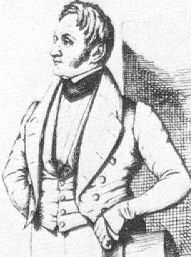John Forsyth was a slaveholder from Georgia who served as Secretary of State in the Van Buren Administration at the time of the Amistad Affair. Forsyth's primary goal seems to have been to minimize the negative political fallout, especially in the South, of the Amistad controversy. His strong pro-slavery views and his prior experience as minister to Spain from 1819-1823 undoubtedly affected his decision to support Spain's demands for return of the Amistad captives to Cuba based on Pinckney's Treaty of 1795. His position remained unchanged despite his private acknowledgment that the captives were not legal slaves, but rather Africans.
Forsyth's handling of the Amistad Affair was severely criticized by John Quincy Adams in his arguments before the Supreme Court. Adams attacked Forsyth's "extreme zeal" in complying with Spanish wishes, even when he knew that doing so would have almost certainly resulted in the executions in Cuba of the Africans. Adams argued that Forsyth was guilty of misstatements and deception in his interpretation of the Spanish claims as a treaty obligation to return slaves, rather than as a demand that the captives be returned for trials and executions in Cuba.
Forsyth assumed his cabinet position in the Van Buren Administration after service as a Georgia congressman and governor. A person of fairly modest means, Forsyth's slave holdings were limited to three household servants.

